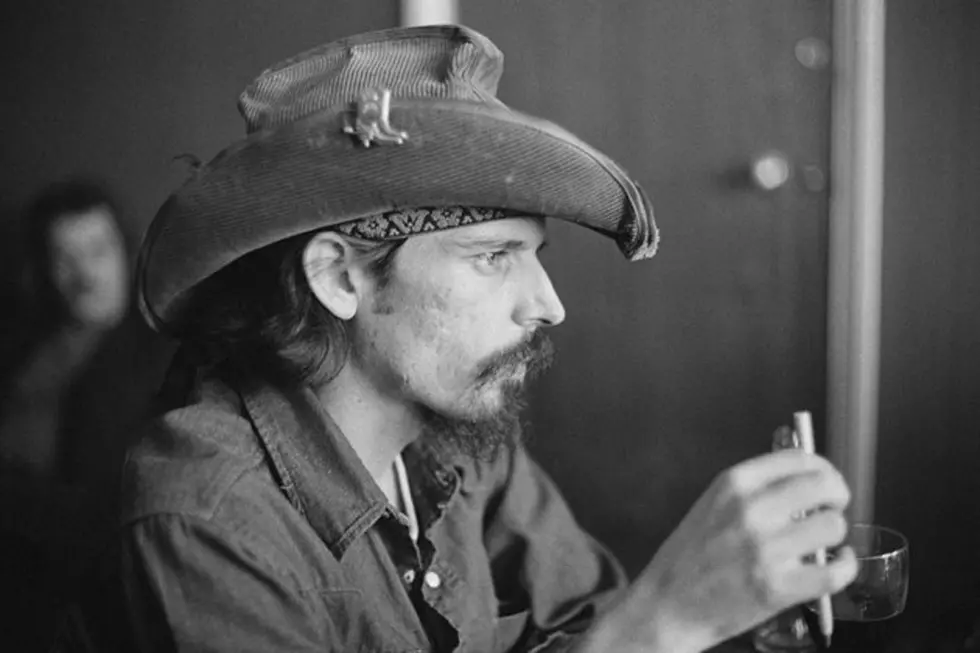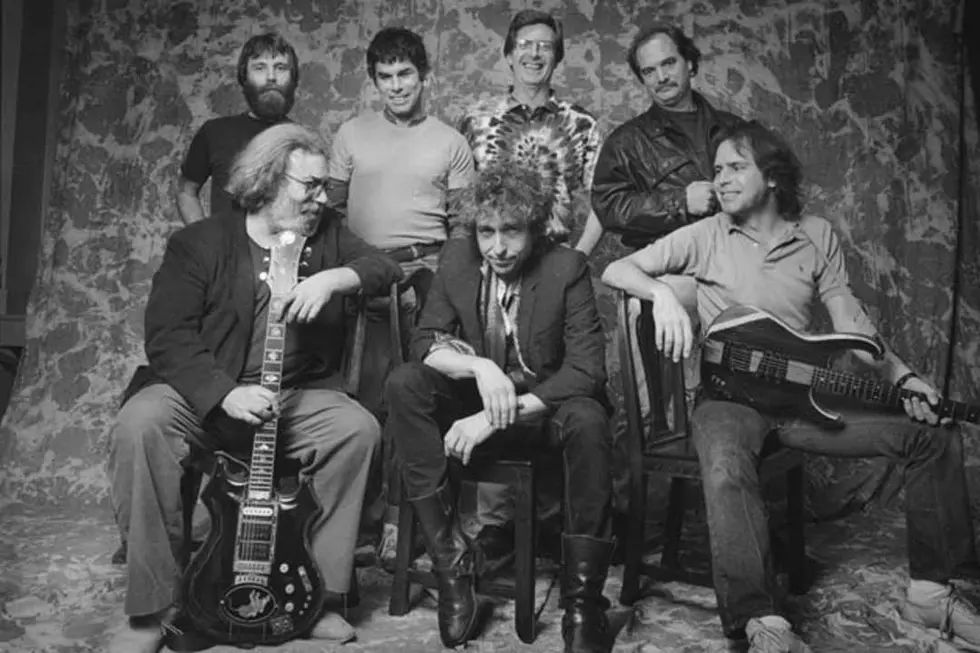
How the Grateful Dead Reached Back to Their Roots on ‘Reckoning’
When the Grateful Dead played the series of autumn 1980 shows that were captured on Reckoning, they were working with a new lease on life in more ways than one.
Not only did they have a new member who’d been giving them a boost of energy, the band were also touring on the heels of that great rarity in the Grateful Dead discography, a strong studio album. They were also returning to their roots by opening each show with an acoustic set that harkened back to their humble jug-band beginnings.
In April 1979, 26-year-old Brent Mydland arrived as a replacement for both keyboardist Keith Godchaux (who'd been dealing with substance abuse issues) and his wife, singer Donna Godchaux. Mydland’s dynamic keyboard playing and gritty, soulful vocals brought a renewed sense of excitement to the band’s shows. The Grateful Dead’s first studio record with Mydland, Go To Heaven was released in April 1980 and showed they still had plenty of spark.
One of that album’s singles, the traditional folk/blues tune “Don’t Ease Me In,” was a new version of a tune they’d first released as the b-side to their 1966 debut, “Stealin’.” The song, which gained heavy rock radio play, showed that even after the “disco Dead” allegations that came with 1978’s questionably produced Shakedown Street, the band still had a strong connection to its roots. Expanding on that idea, the Grateful Dead decided to play a series of shows that would begin with an all-acoustic set.
Their first incarnation had arrived back in 1964 as Mother McCree’s Uptown Jug Champions, an acoustic band performing mostly traditional folk, blues, and string-band material in Bay Area coffeehouses. For their acoustic sets at San Francisco’s Warfield Theatre and New York’s Radio City in September and October 1980, The Grateful Dead would dig into their old jug-band repertoire for tunes like “Monkey and the Engineer” and “On the Road Again.” But they would also deliver stripped-down takes on self-penned songs from all across their repertoire, recasting them for a new era. And the best of them ended up on the two-LP Reckoning, released on April 1, 1981.
Though Jerry Garcia had no electricity with which to spin his trademark psychedelic webs of wonder, he sounds completely comfortable with displaying the unplugged side of his musical personality. As both an acoustic guitar stylist and a singer, he’s at his best here. Never rising to the volume level of the Grateful Dead’s more rocking material required, he’s free to explore the subtleties and shadings of the dynamic spectrum's opposite end in his vocal delivery. He’s aches and yearns on the country-tinged ballad “It Must Have Been the Roses,” before turning chillingly doomy on the creepy-but-beautiful “China Doll,” and then gentle and genial on the sweet “Birdsong.” And the guitar solos Garcia reels off on the likes of “Deep Elem Blues” and the heartbroken country tune “Dark Hollow” are models of melodic economy.
Listen to the Grateful Dead Perform 'Cassidy'
Most of the more upbeat moments on the album are left to Garcia's junior partner. Bob Weir’s warm, welcoming tones light up “Monkey and the Engineer,” a Jesse Fuller-penned folk saga about an outlandish railroad mishap, as well as the uptempo canter of the aforementioned “The Race Is On.” And “Cassidy,” an open-hearted tune first recorded on Weir’s 1972 solo debut, Ace, gets one of its most fluid, impassioned outings up to that point.
Even though Mydland was still the “new guy” in the Grateful Dead, having joined them less than a year and a half earlier, the band’s nonstop tour schedule meant that he had already played more than 100 shows with them by the time they hit the Warfield. So, Mydland was fully integrated into the group’s sound, from his honky-tonk piano solo on the old George Jones country tune “The Race Is On” to his high vocal harmonies on the hymn-like “To Lay Me Down.”
The duality of the Grateful Dead had always been crucial to their identity: Their status as psychedelic warriors capable of jamming their way through the cosmos went hand in hand with their background in bluegrass, folk, and blues. In keeping, the band's studio output duly alternates between otherworldly expeditions (Anthem of the Sun, Aoxomoxoa) and concise, rootsy songcraft (American Beauty, Workingman’s Dead). But in concert, the Grateful Dead’s electric side usually won out, even if they were playing plugged-in versions of their favorite trad-folk tunes.
Reckoning represented an opportunity to show the world beyond their faithful legions exactly what the Grateful Dead’s acoustic side was all about, to remind the stalwart Deadhead nation of the place from whence their heroes came – and to educate a new crop of fans about the rich history of American roots music.
The album closes with one of the band’s most beloved songs, the down-home, mystical ballad “Ripple.” In its final verse, Garcia promises his audience that “if I knew the way / I would take you home” before he’s joined in a final, wordless refrain by Weir and Mydland’s harmonies. The rootsy expedition chronicled on Reckoning suggests that the Grateful Dead were willing and able to take their listeners to the place they called home.
See the Dead Among the Top 100 Albums of the '70s
A Grateful Dead Member Is Part of Rock's Tragic '27 Club'




